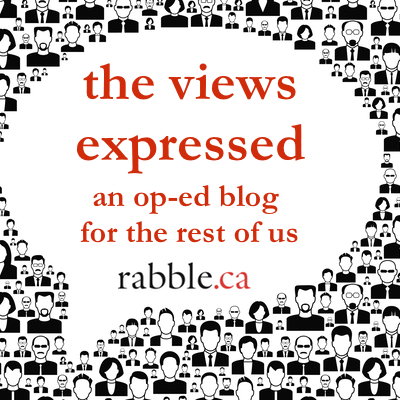While the next federal election will likely be fought on the basis of which party will best manage the economy, the issue which ought to be front and centre is which party will commit to the restoration of Canadian democracy.
For those who may question the urgency of democratic reform, consider the following six examples:
1. The growing use of omnibus bills that sometimes contain a hodge-podge of unrelated pieces of legislation and the frequent imposition of closure motions to terminate debate make it very difficult for opposition members in the House of Commons to exercise their responsibility for scrutinizing proposed government legislation
2. Efforts by the opposition parties (and the media) to obtain information on government activities through requests under Freedom of Information legislation are consistently blocked, delayed, or finally answered in greatly abbreviated form after major censoring.
3. The Parliamentary Budget Office (PBO), established by the Harper government to provide independent analysis to Parliament on the state of the nation’s finances, has been continuously thwarted in its efforts to determine the specific nature and impact of various budget cuts announced by the government. But it has become increasingly evident, for example, that such cuts have had an adverse impact on the services provided to Canadian veterans.
4. The historic role of the civil service to provide objective information and advice has been increasingly subjected to the government’s determination to suppress any views that fail to support its position. The government has been especially insistent on confining scientific information inconsistent with its ideological bent, with the result that public service scientists are not allowed to speak about their own published papers except on the basis of “talking points” provided by the unknown, unaccountable staff in the Prime Minister’s Office (PMO).
5. Dissent from the broader Canadian community has also been discouraged as a result of expanded audits by Revenue Canada of the charitable status of organizations that speak out on matters of public policy in ways that are not supportive of the Conservative government’s policies and views.
6. Even Conservative MPs find themselves subjugated, with PMO staff increasingly dictating when they can speak in the House and what they can say.
The need for democratic reform is obvious, but experience tells us that there is little likelihood of changes being introduced by a governing party. While those in opposition demand reforms, when a party gains power it loses its reforming zeal and finds the once discredited practices quite convenient to continue.
There is no better example of this pattern than Harper, who demanded greater accountability and transparency in government, until he became Prime Minister and set about to undermine these features even more, as evidenced by the examples above.
If real reform is to occur, and democratic practices are to be strengthened, the public will have to insist upon it. Instead, we find that many Canadians are disconnected from their political system. Voting turnout has steadily fallen in recent decades and young people especially are disillusioned with democracy as currently practiced and disinclined to participate.
While public disillusionment is understandable, it is also dangerous. The more people tune out and turn off, the easier it is for those so inclined to bend the rules further and to continue undermining the practice of democracy in Canada.
As a result, Canadian democracy is in a downward spiral; it is undermined from within and ignored from without.
No matter how disillusioned you may be with politics and politicians, nothing will ever improve because you decide to sit on the sidelines. Now is the time to demand, from all parties, a commitment to the restoration of democratic practices. Please be part of this movement.
The challenges facing Canadian democracy, the reforms that need to be introduced, and the ways in which Canadians can become more actively involved are all addressed in my latest book, Reviving Canadian Democracy. I encourage people to read my book before they vote in the upcoming federal election.




